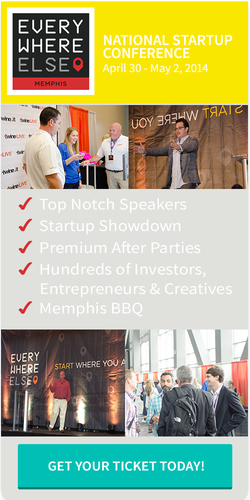Days later, we’re all still talking about it.
 Of course we are! It was the largest freaking startup acquisition in history. Twitter’s been full of “you could be X for the cost of WhatsApp” tweets. We got in that game with some surprising facts about the WhatsApp acquisition.
Of course we are! It was the largest freaking startup acquisition in history. Twitter’s been full of “you could be X for the cost of WhatsApp” tweets. We got in that game with some surprising facts about the WhatsApp acquisition.
Judging from all the tweets, Facebook updates, and blog posts, no one’s quite sure how they feel about it yet. There’s a little awe, a lot disbelief, and more than a lot of jealousy.
For many people, news of the deal came out of nowhere. The founders aren’t exactly tech startups’ poster boys. More than a few people on Twitter didn’t even know what the app did, and suddenly Facebook is paying $19 BILLION for it?!
Remember the good ol’ days when we were shocked by the $1 billion Instagram acquisition? Doesn’t that seem quaint now.
If $19 billion is the new high water mark, where does that leave the other unicorns? Is this the creation of a new class of success–the super unicorn? The pegasus?
The Comparison Trap
With $19 billion as the new high number, what should the rest of us should be shooting for? Will startups be happy with the mere $1 billion they’ve been dreaming about for the last few years?
In the Wall Street Journal today, Box CEO Aaron Levie said that he expects the deal to spur an increase in acquisitions, with every tech giant willing to pay higher and higher prices for startups challenging them.
“It makes you depressed if you’re not selling at $20 billion,” the WSJ quotes him as saying. “I have a lot more work to do.”
Aaron Levie. Whose enterprise-focused cloud storage company will IPO this year in what’s expected to be a multi-billion dollar fashion. Who was named Inc’s Entrepreneur of the Year.
Aaron Levie is now looking at his measly $2 billion company and feeling like things aren’t quite right.
How We Measure Success
The thing about $19 billion deals is that they are very, very rare. (This the first actually.) Maybe M&A deals are only going to continue to grow, and maybe the average acquisition will increase. But in the long run, it’s probably safe to say that 99.99999% of companies will never sell for $19 billion.
WhatsApp built the right product, in the right way, grew in the right areas, at just the right time to make them the perfect acquisition for Facebook. The chances of tons of other companies doing that are slim.
And that’s okay.
Startups are about money. We’re all kidding ourselves if we think the majority of founders are starting companies but don’t care about the money they’ll make doing it.
But how much is enough? And are there other measurements of startup success to consider along with money?
For example, if your software startup sells for enough money to make you, your cofounders, and your first employees multimillionaires, is that enough?
If you build a legacy business that employs hundreds of people and provides outstanding salaries for all of them, will that bring happiness?
Or is it enough to remain a lifestyle business that supports you and maybe one other person for as long as you want it to?
These are questions we all have to ask ourselves. No one can answer them for every founder in the world. The WhatsApp deal should make us all stop and think, “Will I be happy, even if that’s never me?”
Because chances are good it won’t be.




